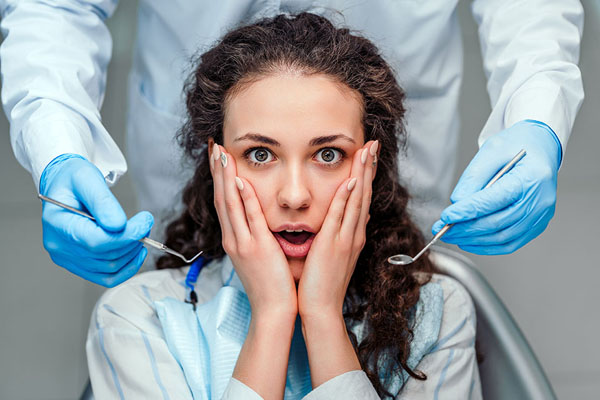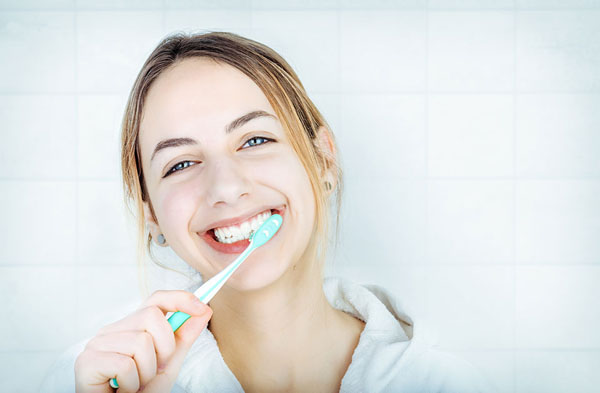What to Eat After Tooth Extraction: A Comprehensive Guide
Your Post-Tooth Extraction Diet
Getting a tooth extracted can be an uncomfortable experience, but it’s often necessary to prevent further damage to your teeth and gums. An essential part of the healing process after a tooth extraction is following the right post-tooth extraction diet. Eating the right foods can promote healing while consuming the wrong foods can delay healing and even lead to potential complications.
Explore our Jupiter dentist’s guide below to learn what to eat to help promote healing after your tooth extraction procedure. If you have any questions about healing after a tooth extraction, contact our dental office today by calling (561) 744-0677.

What to Eat After Tooth Extraction: The Basics
After tooth extraction, your mouth will be sore and sensitive, so it’s crucial to choose foods that are easy to chew and won’t irritate the extraction site.
Soft Foods Are Ideal
Soft foods are your best bet after tooth extraction. Some examples of soft food that’s okay to eat include:
- Mashed potatoes
- Yogurt
- Applesauce
- Soup (broth-based)
- Smoothies
- Scrambled eggs
Avoid Hard, Crunchy Foods
Hard, crunchy, or sticky foods can be painful, irritating, and potentially dislodge the blood clot after a tooth extraction. Avoid these foods for at least a week after the procedure:
- Nuts
- Chips
- Popcorn
- Hard candy
- Raw vegetables
- Steak
Be Careful With Hot Foods and Beverages
Hot foods and beverages can increase swelling and pain. Stick to lukewarm or cold foods and drinks for at least a day after your tooth extraction. Avoid spicy and acidic foods like citrus fruits, as they can irritate the extraction site and delay healing.
Hydration is Key
Drinking plenty of fluids is essential when healing from a tooth extraction because it helps prevent dehydration and promotes overall healing. When you lose a tooth, the extraction site is left exposed, and your body responds by sending blood to the area to form a clot. This clot is necessary for healing but also increases your body’s fluid requirements. However, avoid using a straw, as sucking can dislodge the blood clot and lead to a dry socket.
Foods That Can Aid in Healing
In addition to avoiding certain foods, some can help promote healing after tooth extraction. While you may be limited to certain foods, there are recommendations to consider that can help you get the essential nutrients you still need.
Protein
Protein is essential for tissue repair and can aid in the recovery process. Good sources of protein include:
- Chicken
- Fish
- Beans
- Tofu
- Plain Greek yogurt
Vitamin C
Vitamin C is crucial for collagen production, which helps with tissue repair. Foods high in vitamin C include:
- Citrus fruits (be careful as they can be acidic)
- Bell peppers
- Broccoli
- Tomatoes
- Spinach
Vitamin K
Vitamin K is crucial for blood clotting, which is essential for the healing process. Foods high in vitamin K include:
- Leafy greens (spinach, kale)
- Broccoli
- Brussels sprouts
- Asparagus
- Cabbage
Tips for a Speedy Recovery
In addition to following the dietary guidelines outlined above, there are some additional tips you can follow to promote a speedy and successful recovery after tooth extraction.
Practice Good Oral Hygiene
Brush your teeth gently and avoid the extraction site for the first day or two. After that, you can resume brushing your teeth, but be careful around the affected area. Avoid mouthwash for the first 24 hours, as it irritates the site.
Apply Ice Packs
Applying an ice pack to the outside of your cheek can help reduce swelling and discomfort. Use an ice pack for 10 to 20 minutes at a time, with breaks in between.
Take Prescribed Medications
Your oral surgeon or dentist will likely prescribe pain medication and antibiotics to help manage any discomfort and prevent infection after the procedure. Take the prescribed medications as directed, and don’t wait until you’re in severe pain to take them.
Rest and Relax
Resting and taking it easy for the first few days after the extraction can help promote healing. Avoid strenuous activity and get plenty of rest. This can also help increase blood flow to the extraction area, which can support the healing process.

Frequently Asked Questions
Eat Well After Tooth Extraction Surgery
Whether you’re getting one tooth extracted or undergoing wisdom teeth removal, healing is essential. If you have any questions about recovery after a tooth extraction procedure, contact our Jupiter dentist today by calling (561) 744-0677. Conveniently located near West Palm Beach’s Northside areas, including Hobe Sound, Tequesta, and more, our practice offers accessible general dentistry services.
